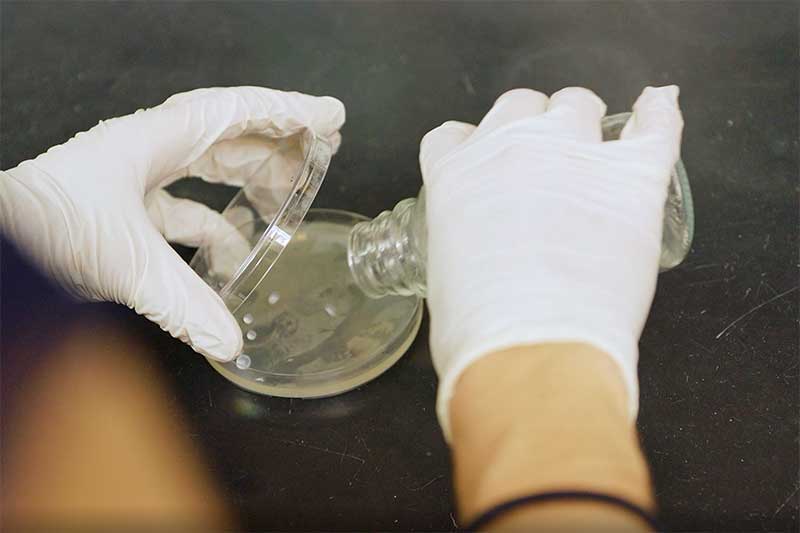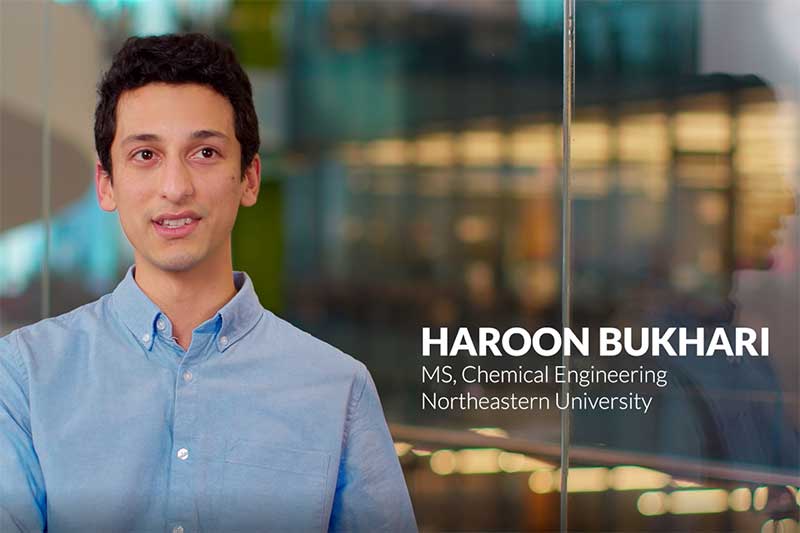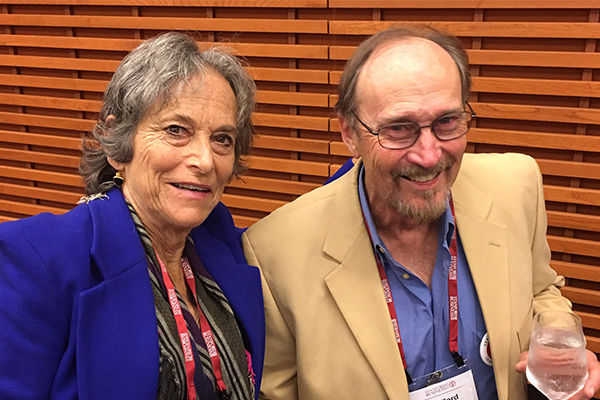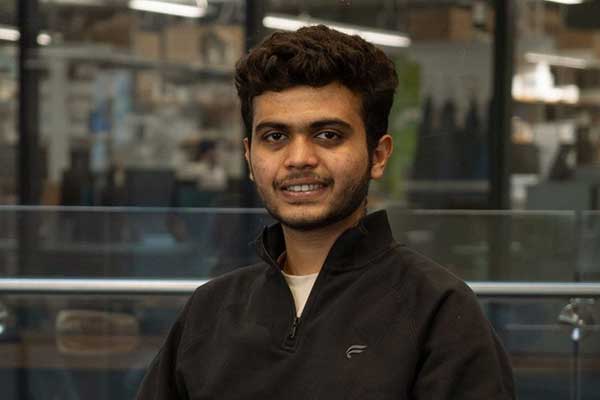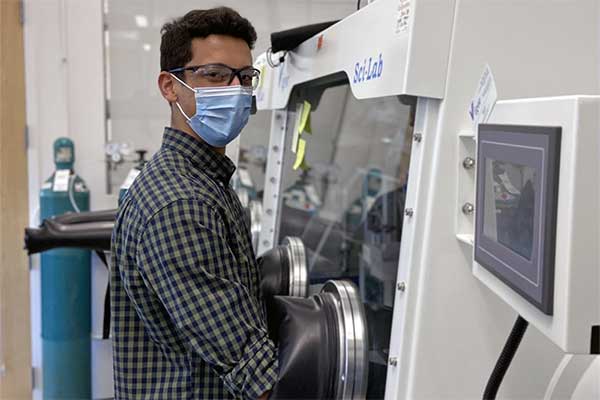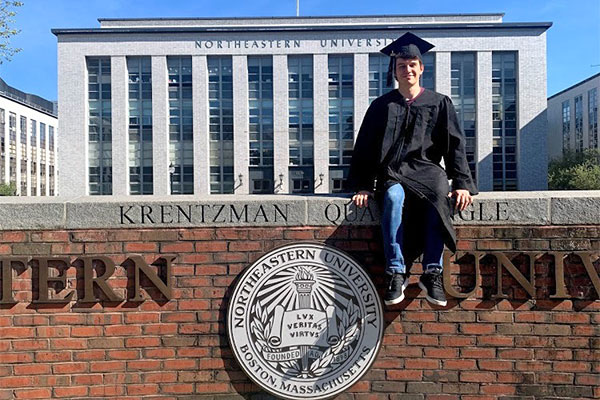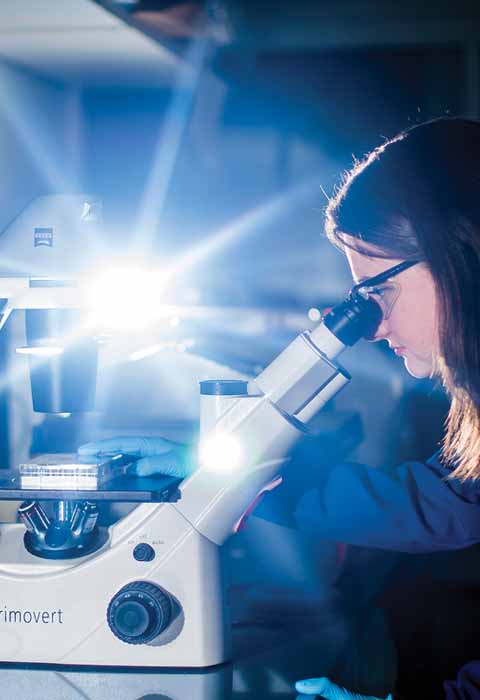
Master of Science in Chemical Engineering
Master of Science in Chemical Engineering
Overview
The Master of Science (MS) in Chemical Engineering offers students the opportunity to develop expertise to tackle pressing challenges facing our society and our planet in areas such as biomedicine, energy, security, and sustainability. The program allows students to develop an in-depth understanding of the principles of chemical engineering through core coursework and applied electives, while gaining career experience through laboratory research or co-op.
Thesis (research-based) and course-based program options are offered. You may also participate in Northeastern’s cooperative education program, gaining up to eight months of professional work experience in your area of interest as part of the academic curriculum.
With a premier location in downtown Boston, a hub of high tech, biotech, academia, and medical and pharmaceutical institutions, including world-renowned hospitals, research in the department leverages the wealth of collaborations with neighboring universities, hospitals, medical centers and industry.
Innovative Curriculum - MS in Chemical Engineering
The Master of Science (MS) in Chemical Engineering is normally pursued by students with a Bachelor of Science in Chemical Engineering or closely allied fields. Students wishing to pursue the master’s degree but with undergraduate educational backgrounds other than chemical engineering may be required to complete supplementary undergraduate course work. These courses are in addition to the minimum course requirements.
The non-thesis MS degree is offered as either a full-time or part-time program to make it more accessible to students pursuing concurrent industrial careers. Students pursuing the non-thesis MS degree may, in exceptional cases, apply and seek admission to pursue a thesis MS degree following their first term of enrollment in the graduate program; if admitted, the thesis MS degree is offered only as a full-time program.
Both full-time Master of Science degree students and Doctoral Candidates are able to select thesis topics from a diverse range of faculty research interests. The department’s research focus areas include Biomolecular and Biomedical Systems; Complex and Computational Systems; Energy and Sustainability; Engineering Education and Pedagogy; and Materials and Nanotechnology.
With a premier location in downtown Boston, research in the department leverages the wealth of collaborations with neighboring universities, hospitals, medical centers and industry.
The department’s research areas include Biomolecular and Biomedical Systems; Complex and Computational Systems; Energy and Sustainability; Engineering Education and Pedagogy; and Materials and Nanotechnology. Graduate students are able to select thesis topics from a diverse range of faculty research interests.
New or prospective graduate students can learn about ongoing research topics from individual faculty members, faculty web sites and graduate student seminars. Graduate student seminars, where our students present the results of their research, are held on a regular basis and provide an interactive forum for learning and exchanging ideas.
MS students select from thesis-based (research) and course-based program options.
The non-thesis MS program is offered full time or part-time to make it more accessible to students pursuing concurrent industrial careers.
- ability to identify, formulate, and solve complex engineering problems.
- ability to explain and apply engineering design principles, as appropriate to the program’s educational objectives.
Over 15 graduate certificates are available to provide students the opportunity to develop a specialization in an area of their choice. Certificates can be taken in addition to or in combination with a master’s degree, or provide a pathway to a master’s degree in Northeastern’s College of Engineering. Master’s programs can also be combined with a Gordon Engineering Leadership certificate. Students should consult with their faculty advisor regarding these options.
Gordon Institute of Engineering Leadership Certificate
Students may complete a Master of Science in Chemical Engineering in addition to earning a Graduate Certificate in Engineering Leadership. Students must apply and be admitted to the Gordon Engineering Leadership Program in order to pursue this option. The program requires fulfillment of the 16-semester-hour curriculum required to earn the Graduate Certificate in Engineering Leadership, which includes an industry-based challenge project with multiple mentors and 16 semester hours of required chemical engineering course work.
Engineering Business Certificate
Students may complete a Master of Science in Chemical Engineering in addition to earning a Graduate Certificate in Engineering Business. Students must apply and be admitted to the Galante Engineering Business Program in order to pursue this option. The program requires the applicant to have earned or be in a program to earn a Bachelor of Science in Engineering from Northeastern University. The integrated 32-semester-hour degree and certificate will require 16 semester hours of the chemical engineering core courses and 16 semester hours from the outlined business-skill curriculum. The coursework, along with participation in co-curricular professional development elements, earn the Graduate Certificate in Engineering Business.
Experiential Learning
Northeastern combines rigorous academics with experiential learning and research to prepare students for real-world engineering challenges. Northeastern is an R1 research institution, rated among universities with the highest research activity.
The Cooperative Education Program, also known as a “co-op,” is one of the largest and most innovative in the world, and Northeastern is one of only a few that offers a co-op program for graduate students. Through this program, students gain up to eight months of professional experience employed in their field of interest as part of the academic curriculum, giving them a competitive edge upon graduation. The College of Engineering has over 3,000 co-op employer partners globally. Our dedicated team of co-op coordinators prepare students for the co-op experience through resume building, developing interview skills, and guiding professional development. Some chemical engineering co-op employers include Ambri, Metalor Technologies, Nano-C, Pellion Technologies, Sanofi Genzyme, and Waters Corporation.
Academic Advising
The Academic Advisors in the Graduate Student Services office can help answer many of your questions and assist with various concerns regarding your program and student record. Use the link below to also determine which questions can be answered by your Faculty Program Advisors and OGS Advisors.
Admissions & Aid
Ready to take the next step? Review degree requirements to see courses needed to complete this degree. Then, explore ways to fund your education. Finally, review admissions information to see our deadlines and gather the materials you need to Apply.
